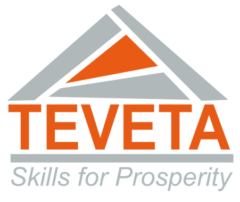Introduction
The Technical, Entrepreneurial and Vocational Education and Training (TEVET) Authority is a regulatory body that was established in 1999 by an Act of Parliament with the mandate to regulate, promote and facilitate sustainable provision of quality technical, entrepreneurial and vocational education and training in Malawi.
In fulfillment of its regulatory role, the TEVET Authority accredits TEVET provider insitutions, programmes, curricula, trainers, verifiers and Quality Assurance bodies. Accreditation is a quality assurance tool that ensures adherence to required standards and subsequently, quality of training outcomes. This falls under the strategic area of focus of regulation and compliance which aims at ensuring that all TEVET programmes are executed based on acceptable local and international standards and regulations.
Through accreditation the Authority aims to set standards that ensures quality of learning activities and outcomes of the TEVET system. It involves certification, usually for a particular period of time, of a person, quality assurance body, an institution or a programme as having the capacity to fulfill a particular function in the quality assurance system set up by TEVET Authority.
All TEVET Authority registered training institutions qualify to apply for accreditation. Programmes at a registered training institution should also be accredited. Additionally, Trainers, Verifiers, Recognition of Prior Learning Centres and Quality Assurance bodies should apply for accreditation.
The criteria which are used to evaluate all applicants and qualified individuals equally underwrite the principles of fairness, validity and reliability used in conducting the evaluation.
An institution will be accredited by TEVET Authority if it:
- is registered as a TEVET provider institution by TEVET Authority
- has capacity to develop, deliver and evaluate learning programmes
- has the necessary financial, human, learning equipment and infrastructural resources and policies and practices for staff recruitment, appraisal and development
- has a quality management and quality assurance system
- has staff with necessary technical and academic qualification and experience.
A verifier is an occupational expert engaged to conduct external verification of assessments, both at an institution and industry.
A verifier will be accredited by TEVET Authority if the individual:
- has gone through Competence Based Education and Training (CBET) induction
- has conducted a minimum of three consistent CBET assessments based on external verification reports, and
- has relevant qualifications and experience in concerned field
An Education and Training Quality Assurance Body is an organisation or grouping accredited with the function and responsibility to monitor and audit achievements in terms of national standards and qualifications.
An ETQAB will be accredited by the Authority if it demonstrates:
- the need for which it was established in the sector
- primary focus for its quality assurance activities based upon its association with the identified sector and the identified mission of the sector
- capacity to perform the functions assigned to it by the TEVET Authority


